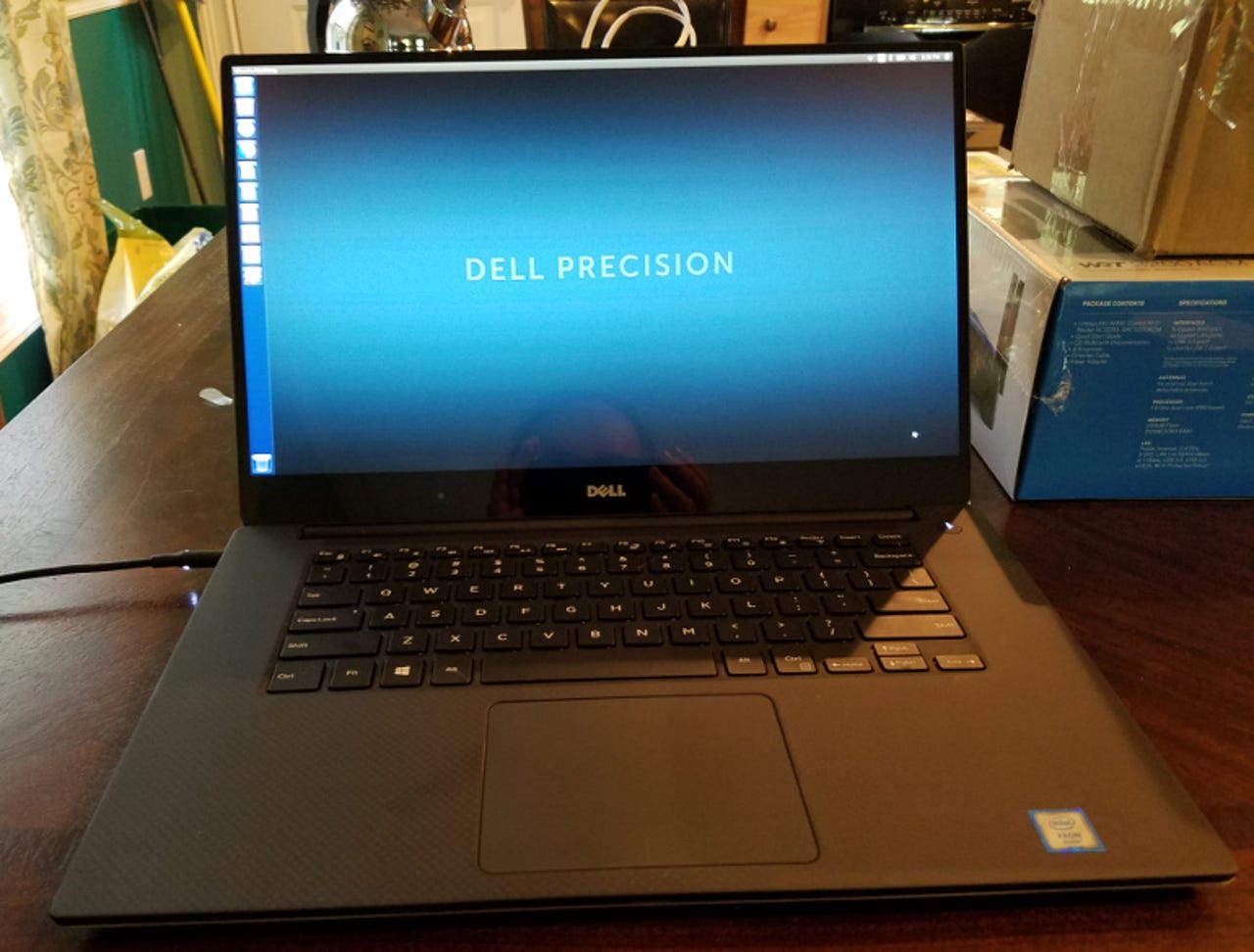Dell Precision 5520 Mobile Workstation review: The Ubuntu Linux laptop for power developers


Dell describes its Project Sputnik computers as systems developed by and for developers. It's right. They are. While the XPS 13 is the best known of these, it could stand a little improvement. For example, it can only hold 16GBs of RAM. For those who need even more power and memory, you can get a Dell Precision 5520 Mobile Workstation.
You can up the RAM on this powerhouse machine to 32GBs of RAM. For processing punch, the 5520 defaults to an Intel Core i5-7440HQ 2.80GHz processor, but for an extra $322 you can crank it up to a blazing-hot Intel Core Xeon 3 GHz E3-1505M v6 CPU. The I5 7440 Processor comes with the Intel 630 HD Graphics. The other processors come with a snappy Nvidia Quadro M1200 graphics processor with 4GBs of video RAM.
My review system came with all the trimmings: 32GBs of RAM, the Xeon processor, the M1200 graphics, and a 512GB Solid-State Drive (SSD). In a word, it's sweet. This is the fastest computer I've ever had in my laptop bag.
Ever since I switched over to a Chromebook Pixel for my main laptop, I've grown to dislike carrying even a single extra ounce on my shoulder. The 5520, at 4.4 pounds with the long-life battery, weighs a tad more than I'd like, but for the power, I'll forgive it its weight.
This 15-inch laptop is also a handsome beast. Its machined aluminum lid lives on a carbon-fiber body. I especially liked the patterned, soft-touch wrist-deck. This is one laptop keyboard you can type on all day with little danger of carpal-tunnel syndrome.
The screen is a bezel-free InfinityEdge display. This is a truly lovely 4K 15.6-inch display and the Nvidia makes it even nicer. But -- and this is a big but -- for me at least its bright 3840x2160 (4K) display renders text too small to be easily read. Once I set it to a lower resolution, 1920x1080, I was perfectly happy with it.
That said, it's not perfect. The chiclet style keyboard is good enough, but I'm picky when it comes to keyboards. Anyone who writes or programs for a living wants the best possible keyboard. I could write on this keyboard all day, but I'd rather have, say, ThinkPad P50's keyboard.
The same is true of the touchpad. In my case, I found it a little too sensitive. On the other hand, I was able to adjust it to work well for me.
To connect with the outside world, the 5520 comes with a USB 3.1 Type C/Thunderbolt and two USB 3.0 Type A ports. It also comes with HDMI port, an SD card reader, and a Kensington lock.
For networking, it uses a Dell Wireless 1820 Card. This supports 802.11ac Dual-Band Wi-Fi and Bluetooth 4.2.
Running on top of all this tasty hardware is Ubuntu 16.04. This is the long-term support edition. This operating system is far more secure than Windows, where you can hardly blink these days without running into ransomware.
The extended-life six-cell battery ran for over seven hours for me. I used it every day for several days as my main work machine.
Let's get down to brass tacks. How well does this work as a developer's laptop? My answer: Great.
While I write far more words than code these days, I compiled the latest Linux kernel, 4.12, in 128.4 seconds. On the newest XPS 13, the same job took 300.9 seconds.
There is one glaring annoyance when you try to buy this machine. When you go to Dell's website and choose Ubuntu for this workstation, you're presented with a Microsoft adware message shouting that "The Operating System you've selected does not support Office Productivity Software." Really? I'll take LibreOffice over MS Office any day. Give it up already Microsoft! And, shame on you Dell for letting this notice in there.
All of this power doesn't come cheap. While a base model starts at $1,399, with all the goodies it costs $2,847.50. Yes, that's expensive, but it you want the best, you pay. If my livelihood depended on programming, I'd be pulling out my credit card now.
Related Stories: